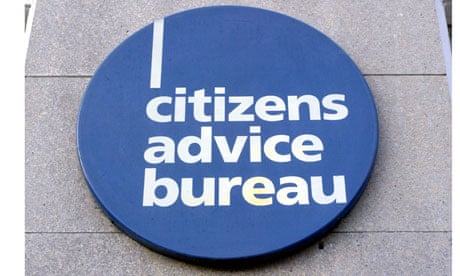Cut-price legal advice is growing in popularity – not so surprising, perhaps, in an era of economic hardship and legal aid cutbacks.
Ken Clarke's campaign against the "compensation culture" and "no win, no fee agreements" is aimed at producing a generation of increasingly cost-conscious litigants.
One of the latest solutions, however, is not mediation but quick-fire opinions. A preference for online, instant gratification of legal curiosity may also be helping Expert Answers, a website that is out to promote its services as an alternative professional model. Adopting the unusual business approach of asking customers – not "clients" – to pay whatever sum they think the advice is worth (above a £10 minimum), it is exploring a new market.
Gathering up bundles of complex paperwork, paying a substantial sum to consult a solicitor and scheduling the time for a meeting can be a deterrent to the traditional approach, claims James Mather, a Cheshire solicitor and the legal brains behind Expert Answers.
"People want advice sooner than later," Mather maintains. "Citizens Advice Bureaux are closing down and you can't get opinions. We are not under-cutting high street solicitors. We want the stuff that traditional solicitors firms don't want.
"We are not acting on behalf of clients: we are just giving them directed advice. We had one question from a lady who wanted to know how long she had to bury her brother who had just died. It's a reasonable question: there is no statutory period."
Mather says he has 44 qualified solicitors and barristers who pick up the submitted questions and fire back replies. Most are working lawyers who answer questions whenever they can find the time.
One solicitor, the company said, answered questions from the side of the road as she waited for the AA to repair her car.
Having seen a brief synopsis of an opinion, those customers who choose to pay for a fuller version are offering between £10 and £150, according to Mather. "The average payment for each answered question is £24."
What if the legal opinion is wrong? "Our advisers are insured and we are insured for £250,000," he adds.
Mather's initiative is not the only legal website reshaping the provision of legal advice. Wigster promises to: "Compare solicitors, compare prices."
Its bright, pastel colours and cheerful cartoons offer a free, rating system of lawyers and legal firms under the categories of "debt, divorce and family, disputes, road traffic offences" and other specialist areas.
The Citizens' Advice Bureau (CAB) acknowledges that some of its offices have suffered severe cuts in funding. "We are experiencing huge and growing demand for legal advice," a spokeswoman said. "And there are far-reaching plans for changes in legal aid that will have a serious impact on our capacity to provide specialist advice and casework."
The Law Society, which represents solicitors, is cautious about online advice. It warns: "The cheapest option is not always the best option."
"If a case is poorly managed," Linda Lee, president of the Law Society adds: "It can end up costing much more in the long term, and when this involves family breakdown, for example, the consequences can be devastating. Not every case is straightforward, especially if issues such as access to children or interests in property are involved.
"The person with the problem may fail to mention something which has a significant bearing on their case; and the advice may as a result be dangerously wrong. Even if they get the right answer, there is no guarantee that the user will be able effectively to act on the answer they are given.
"Sites are likely to be of little value to the vulnerable people who most rely on legal aid – they may find it very difficult to express their issues accurately and effectively without assistance, even if they have access to the internet."

Comments (…)
Sign in or create your Guardian account to join the discussion